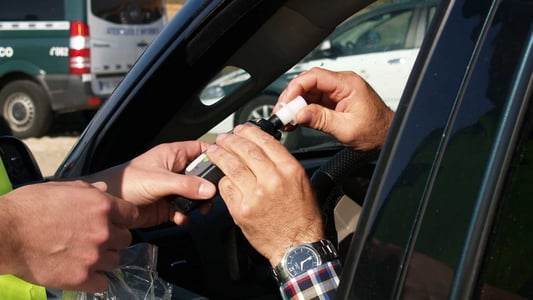If you were pulled over and arrested for OUI because you failed a breathalyzer test, that doesn’t mean you can’t win your OUI case at trial.
In Massachusetts, it is illegal to drive with a blood alcohol content (BAC) level of .08 percent or more. If you blow into a breathalyzers after being stopped by police and your results show a BAC of .08 percent or more, you will be considered over the limit and arrested for OUI.
If you fail a breathalyzer test, you will face the following license suspensions:
- 30 days if you are 21 years or older
- 30 days plus 180 days if you are 18 to 21 years of age and have a BAC of .02 or greater
- 30 days plus 1 year if you are under 18 years of age and have a BAC of .02 or greater
Furthermore, if you refused a breathalyzer test, it is still possible to win your case at trial. However, you’ll face harsher initial OUI/DUI license suspension penalties for refusing a breathalyzer test:
- 180 days if you are over 21 and have no prior OUI convictions
- 3 years if you are over 21 and you have 1 prior OUI conviction
- 5 years If you are over 21 and have 2 prior OUI convictions
- Lifetime license suspension if you are over 21 and have 3 or more prior OUI convictions
Drivers who are under the age of 21 also face harsh OUI/DUI license suspension penalties for refusing a breathalyzer:
- 3 years if you are under the age of 21 and have no prior OUI convictions
- 3 years if you are under the age of 21 and have 1 prior OUI conviction
- 5 years if you are under 21 and have 2 prior OUI convictions
- Lifetime license suspension if you are under 21 and have 3 or more OUI convictions
Failed Breath Test Defenses
There are many ways an experienced OUI attorney can defend against breathalyzer test evidence in court. Breathalyzers are far from perfect, and past examples have shown that breathalyzer evidence isn’t always handled with the care necessary to be presented correctly in court.
In order to prove that you were driving while over the legal BAC limit, the government must meet their burden of proof by establishing that:
- The breathalyzer test was conducted properly by police and in compliance with the 15-minute observation period
- The breathalyzer machine was in working order and has documented paperwork of annual testing certifications to prove this
- The breathalyzer machine was in working order and a reliable witness can testify that it was properly maintained
To defend against breathalyzer evidence at trial, your OUI attorney may identify and attack the following elements of your charges and your breathalyzer results:
- Lack of compliance by police with the 15-minute observation period
- Evidence of a faulty breathalyzer machine
- Failure of the government to provide witnesses testifying to the breathalyzer machine’s accuracy
- Failure of the government to present documentation proving the breathalyzer machine’s accuracy in a timely manner
- The breathalyzer results were within the margin of error (if the results showed a BAC close to .08 percent)
- You have an underlying medical issue which skewed your breathalyzer results or take medications that affect breathalyzer results
- The police stopped you for unlawful reasons and the breathalyzer evidence, among other evidence, should be excluded from your case
Challenging the accuracy of a device as rigorously designed as a breathalyzer may seem like a challenge, but time and time again, breathalyzers have been proven to be faulty machines. The government has also failed to handle breathalyzer evidence properly in many cases.
In fact, in the very recent past, it was discovered that breathalyzer machines in Massachusetts were faulty and that the government had withheld evidence of it. This has called tens of thousands of OUI cases into question and cast doubt on both the accuracy of breathalyzer tests and the Massachusetts government’s ability to present breathalyzer evidence correctly and fairly during OUI cases.
If you failed a breathalyzer test and have been charged with OUI in Massachusetts, don’t lose hope. Contact an experienced OUI attorney and have them review the facts of your case. There could be other defenses against breathalyzer test evidence that you are not yet aware of.



